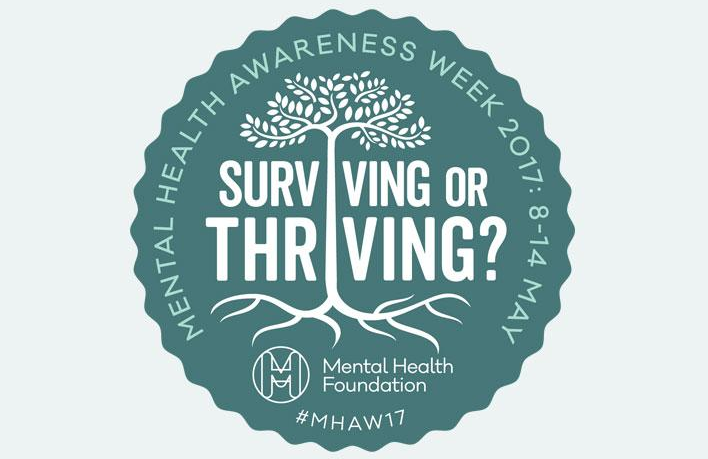Thankfully, my children survived their teenage years without any major issues, but the topic of their friends mental health was something they often discussed openly. As a middle aged person, I can remember being at school during the ‘gloomy 70’s’ and nobody I knew then described themselves or others as being depressed. Are people today more likely to feel that way, or has this situation always existed but was until recently a taboo subject?
Things have clearly changed, because if I glibly remark “I don’t understand why most of your friends are so depressed – this never happened in my day when everyone was less well off!”, I am instantly accused of being a dinosaur! Maybe I will learn more by paying proper attention to this year’s Mental Health Awareness Week and the work of national organisations like MIND which do invaluable work in this field.
Depression may be defined as a mental health condition where a person has a long lasting low mood, and/or may lose pleasure or interest in activities. Symptoms may also include:
A depressed mood during most of the day, particularly in the morning
Fatigue or loss of energy
Feelings of worthlessness or guilt
Impaired concentration, indecisiveness
Insomnia or excessive sleeping
Recurring thoughts of death or suicide
Significant weight loss or gain
Difficulty concentrating, remembering details, and making decisions
Feelings of hopelessness and/or pessimism
How long do these signs need to be present before they are diagnosed as depression?
With major or clinical depression, one of the key signs is either a depressed mood or loss of interest. For a diagnosis of depression, at least one of these signs should be present most of the day for at least two weeks. In addition, the depressive symptoms need to cause clinically significant distress or impairment. They cannot be due to the direct effects of a substance, such as a drug or medication.
People with depressive illnesses do not all experience the same symptoms. How severe they are, how frequent, and how long they last will vary depending on the individual and their particular illness.
The Mental Health Foundation has hosted Mental Health Awareness Week since 2000 and this year between 8-14 May the theme is ‘Surviving or Thriving’ [ www.mentalhealth.org.uk ]
To support mental health charities with vulnerable community lone workers, Lookout Call is pleased to announce that a 50% discount on licences is now available for all new clients in the sector which place an order by 31 May 2017, quoting the reference MHAW17 [ www.lookoutcall.co.uk ]
“We’ve had good feedback from the staff who find Lookout Call easy to use and the service we have received from Lookout Call has been excellent.” [MIND in Cambridgeshire]
